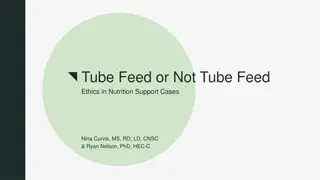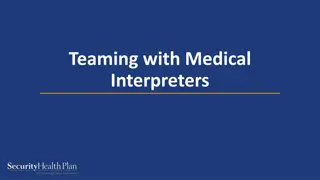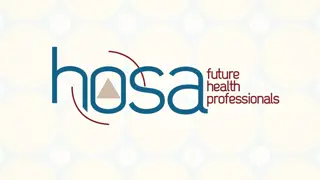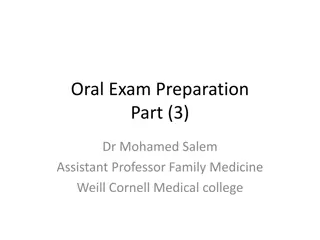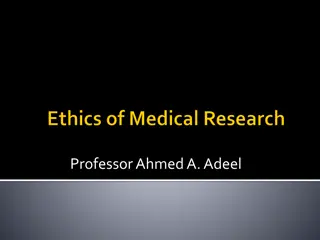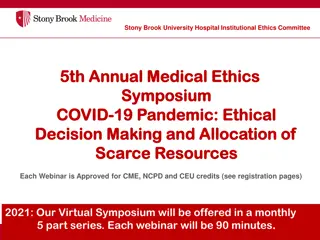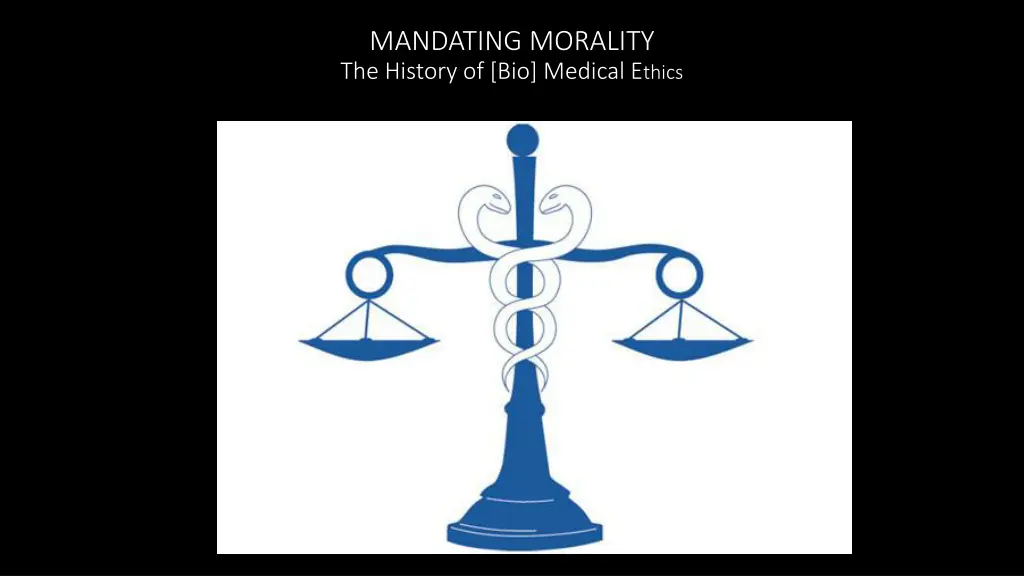
A Look Into Ancient Medical Ethics and Oaths
Explore the historical significance of medical ethics through the Charaka Oath, the oldest known version of the Hippocratic Oath, and the contributions of figures like Charaka to ancient medicine.
Download Presentation

Please find below an Image/Link to download the presentation.
The content on the website is provided AS IS for your information and personal use only. It may not be sold, licensed, or shared on other websites without obtaining consent from the author. If you encounter any issues during the download, it is possible that the publisher has removed the file from their server.
You are allowed to download the files provided on this website for personal or commercial use, subject to the condition that they are used lawfully. All files are the property of their respective owners.
The content on the website is provided AS IS for your information and personal use only. It may not be sold, licensed, or shared on other websites without obtaining consent from the author.
E N D
Presentation Transcript
MANDATING MORALITY The History of [Bio] Medical Ethics
Charaka Monument Handwar, india Charaka (c. 6th-2ndcentury B.C.E.), was one of the founders of Ayurveda, a system of medicine and lifestyle developed in ancient India. Among other contributions to the history of Indian Medicine, he is credited with revising the 8thcentury B.C.E. Ayurvedic treatise known as the Charaka Samhita.
The Charaka Oath (Key Elements) Thou shalt lead the life of a celibate, grow hair and beard, speak only the truth, eat no meat, eat only pure articles of food, be free from envy and carry no arms. There shall be nothing that thou should not do at my behest except hating the king, causing another s death, or committing an act of great unrighteousness or acts leading to calamity. If thou desirest success, wealth and fame as a physician and heaven after death, thou shalt pray for the welfare of all creatures beginning with the cows and Brahmanas. Day and night, however thou mayest be engaged, thou shalt endeavor for the relief of patients with all thy heart and soul Thou shalt not commit adultery covet others possessions be a drunkard or a sinful man nor associate with abettors of crimes Thou shalt act always with a view to the acquisition of knowledge and fullness of equipment.
The Charaka Oath (Key Elements, continued) extremely abnormal, wicked, and of miserable character and conduct [or] on the point of death, and similarly women who are unattended by their husbands or guardians shall receive treatment. No persons, who are hated by the king or are hated by the public who are The peculiar customs of the patient s household shall not be made public. Even knowing that the patient s span of life has come to its close, it shall not be mentioned by thee there, where if so done, it would cause shock to the patient or to others. If thou has conducted thyself well with [patients], the precious stones, the grains and the gods become well disposed towards thee. If thou shouldst conduct thyself otherwise, they become unfavorable to thee. To the teacher that has spoken thus, the disciple should say, Amen.
Oath of Hippocrates (Elements discarded to conform with current standards of practice) Invocation of the ancient gods of medicine, or for that matter, any god, recent or ancient. Reference to a single teacher and the extreme devotion to him and his family. Prohibition against performing abortions. Prohibition against giving a deadly medicine, which conflicts with the current practice of physician-assisted suicide. Prohibition against performing surgery, in particular surgery to extract urinary stones.
Maimonides Monument in Crdoba, Spain Moses ben Maimon, commonly known as Maimonides (1135-1204 C.E.), was a medieval Sephardic Jewish philosopher and physician, whose prolific writings figured prominently in the history of Islamic and Arabic medical science.
Oath of Maimonides The eternal providence has appointed me to watch over the life and health of Thy creatures. May the love for my art actuate me at all times; may neither avarice nor miserliness, nor thirst for glory or for a great reputation engage my mind; for the enemies of truth and philanthropy could easily deceive me and make me forgetful of my lofty aim of doing good to Thy children. May I never see in the patient anything but a fellow creature in pain. Grant me the strength, time and opportunity always to correct what I have acquired, always to extend its domain; for knowledge is immense and the spirit of man can extend indefinitely to enrich itself daily with new requirements. Today he can discover his errors of yesterday and tomorrow he can obtain a new light on what he thinks himself sure today. Oh, God, Thou has appointed me to watch over the life and death of Thy creatures; here am I ready for my vocation and now I turn unto my calling.
Modern Medical Ethics Basic Moral Principles Autonomy (Respect for the right of patients to make their own decisions regarding their care) Beneficence (Always doing what s in the patient s best interest) Non-maleficence (Endeavoring to never harm the patient) Justice (Treating all patients equitably and distributing medical resources fairly) Confidentiality (Respect for patients privacy) Truthfulness (Self-evident)
La Visite Medicale oil on canvas, 1945 C.E. by David Olere, Auschwitz-Birkenau Memorial and Museum, O wi cim, Poland. Olere was deported from Drancy to Auschwitz in 1943 C.E., which gave him first-hand knowledge of life in the German concentration camps of World War II. In this work, the nature of the experimental drug being held by the SS guard and about to be injected into the half-naked prisoner by the infamous Dr. Josef Mengele can only be imagined. It might have been a suspension of any one of a number of deadly bacteria that were studied by death-camp physicians like Mengele, or phenol, which was used to terminate the lives of hopeless cases once they were of no further use to the Third Reich. All was done in the name of patriotism, which gave license to murder, lie and torture for the sake of the fatherland.
Ten Critical Elements of the Nuremburg Code Concerning Research Involving Human Subjects Voluntary consent is essential. The results must be for the greater good of society. Research should be based on prior animal experimentation. Research should be conducted by avoiding physical/mental suffering or injury. No experiments should be conducted if it is believed to cause death/disability. Risks should never exceed the benefits. Adequate facilities should be used to protect subjects. Research should be conducted only by qualified scientists. Subjects should always be at liberty to stop at any time. Scientists in charge must be prepared to terminate the experiment when injury, disability, or death is likely to occur.
1972 Cartoon Decrying the Breech in Ethical Standards Involved in the U.S. Public Health Service s Tuskegee Untreated Syphilis Study
In vitro fertilization, just one of many modern medical miracles that have given rise to ethical challenges of unprecedented complexity.




